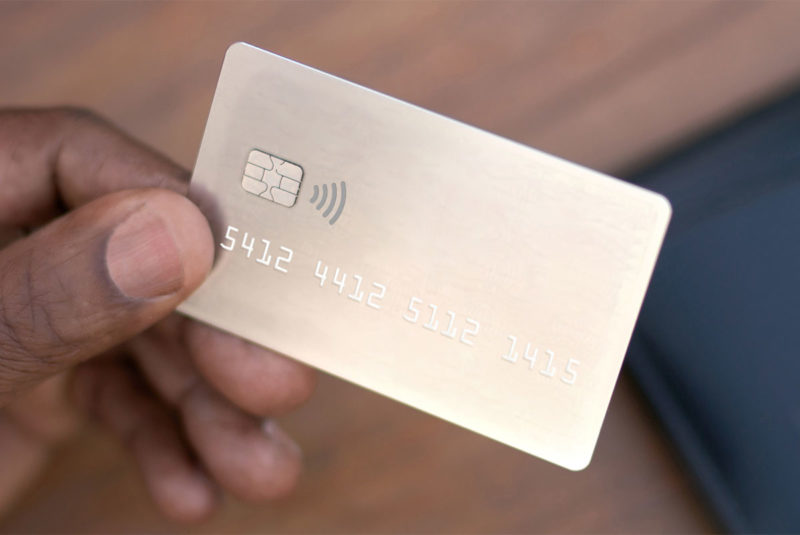Trying to boost your credit score? You’re in luck. Strategies abound for establishing or increasing credit scores. One approach that’s been around for quite some time involves becoming an authorized user (AU) on someone else’s credit card account. Being an AU on a well-managed credit card has the potential to improve your credit scores.
The AU strategy starts with asking a loved one for a favor. You ask a family member or friend to add your name onto an existing credit card account.
But there’s another way to become an AU. You can pay someone you don’t know to add you onto his or her credit card account. This process is known as buying or renting a tradeline or, sometimes, piggybacking.
Piggybacking may seem like an attractive option if you don’t have a loved one who can add you as an AU. Yet before you rush out to try this approach, it’s important to understand what could go wrong.
Piggybacking on a stranger’s credit card is often expensive. And it doesn’t always work. Worst of all, renting a tradeline might be considered fraudulent in certain circumstances.
Buying Tradelines: How Does It Work?
When you buy or rent a tradeline, you pay money for a stranger to add you onto a credit card as an authorized user (AU).
Here’s how the tradeline rental process works behind the scenes.
- A tradeline broker recruits people with positive credit card accounts who are willing to add AUs for a fee.
- The company advertises tradelines for sale to people with bad credit as a so-called credit repair tactic.
- The person with bad credit (aka the customer) pays to be added onto an established credit card as an AU. The tradeline company facilitates the transaction and collects the money.
- The tradeline company pays the cardholder a commission.
Warning: It’s sometimes possible to connect with a credit cardholder on your own to arrange a piggybacking agreement. Craigslist and similar websites are the types of places you might find such offers. But removing the middleman could make tradeline renting even more dangerous.
Problems With Buying Tradelines
Tradeline companies often make big promises about how buying tradelines raises credit scores. And becoming an AU, even on a stranger’s credit card, may indeed be effective.
According to a 2010 Federal Reserve Study, “… piggybacking credit can materially improve credit scores, particularly for individuals with thin or short credit histories.”
Yet tradeline renting involves significant downsides as well.
1. Your credit scores might not improve
Paying to become an AU on a stranger’s credit card doesn’t guarantee you a credit score increase. So, there’s a chance you could pay a lot of money for a credit improvement strategy that won’t work.
Check out these six reasons why piggybacking on a credit card might not improve your credit scores:
- Some credit card issuers don’t report AU account activity to the credit bureaus. If the credit card doesn’t show up on your reports, it cannot help your credit scores (but most issuers, including the major issuers, report AU accounts).
- The credit card company might close the account. Credit card agreements often forbid cardholders from selling AU status to others.
- The primary cardholder could manage the account poorly. Late payments or high credit utilization on the account could damage your credit scores. Even if an account starts out in good standing, there’s no guarantee the primary cardholder won’t mismanage it in the future.
- A new tradeline might not benefit you. Credit scoring is complex. Adding a new, positive account to a credit file could benefit one consumer’s scores. Yet it might not have the same impact for you. Your credit scores aren’t based on a single account, but rather the makeup of your entire reports.
- The cardholder could remove you. Eventually, the cardholder may want to sell AU status to someone new. At that point, she might contact her card issuer and remove your name from the account. Once you’re no longer an AU, the account will come off your credit reports (if it was there in the first place).
- Credit score creators are smart. FICO® Score 8, the most widely used FICO® Score, includes programming that can detect AU piggybacking. If the scoring model suspects you’re paying for AU status, any positive impact that account might have had on your credit score is reduced.
2. Buying tradelines can be expensive
Tradeline companies can charge a lot of money for their services. You might pay anywhere from $150 to $4,000 (or more) to become an AU on someone else’s credit card.
Tradeline rental pricing often varies based on:
- The age of the account
- Credit limit
When you buy tradelines with high credit limits or older accounts (called “seasoned tradelines”), it’s typically more expensive. Why? Because there’s a chance these accounts might improve your credit scores more.
AU status on a credit card with a high credit limit and a low balance could lower your overall credit utilization ratio. Credit utilization is largely (though not totally) responsible for 30% of your FICO® score. An older account could improve the age of your credit. Length of credit history is worth 15% of your FICO® score.
3. Tradelines for sale is a gray area — legally speaking
Lenders, credit reporting agencies, and credit score creators (like FICO® and VantageScore®) all frown on tradeline renting. Some organizations go as far as calling the practice a scam.
But is buying tradelines illegal? It’s a gray area.
Experian warns that buying tradelines could put you in danger of committing bank fraud. If you pay money to piggyback on a stranger’s credit card and then misrepresent your true creditworthiness to a lender when you borrow money, it could be a problem — especially if you later default on the loan.
The Federal Trade Commission (FTC) also says that piggybacking isn’t a good answer for consumers with bad credit. In 2020, the FTC went after a Denver-based credit repair company called BoostMyScore. The company was selling authorized user tradelines.
According to the FTC, BoostMyScore targeted vulnerable consumers with ads promoting the benefits of piggybacking. The company claimed buying tradelines would significantly improve credit scores and help consumers qualify for mortgages. But the company couldn’t back up their score improvement claims.
What Is a Tradeline?
The term “tradeline” probably isn’t something you use in your day-to-day life (unless you work at a credit reporting agency). Tradeline simply describes an account that a credit reporting agency lists on your credit report.
Tradelines come in three primary categories — revolving, installment, and open. Here are some examples of each.
- Installment tradeline examples: Auto loans, student loans, mortgages, and personal loans
- Revolving tradeline examples: Credit cards and lines of credit
- Open tradeline example: Charge card (like certain Amex cards)
On your credit report, a tradeline includes a variety of information about your account.
- Creditor’s name and contact information
- Account number (truncated for your protection)
- Type of account (revolving, installment, or open)
- The date you opened the account (and the date it closed, if applicable)
- Your relationship to the account (e.g., joint account holder, authorized user, etc.)
- Credit limit or original loan amount
- Account balance
- Date of last activity
- Past-due balance (if applicable)
- Monthly payment amount
- Account status (current, 30 days late, 60 days late, etc.)
- Historical payment history (for the past seven years)
- Time-series data (on credit cards, this includes a snapshot of your account information — balance, payment due, payment made, etc. — each month for the past 24 months)
Are There Better Ways to Improve Your Credit Scores?
There are other ways to rebuild your credit that are safer and less expensive than trying to buy tradelines.
- Open your own credit card. If you have bad credit or no credit, consider starting with a secured credit card. Being the primary account holder on a credit card account is a smart way to build credit in the long run. It gives you the opportunity to establish a positive payment history on your own. As a primary account holder, you’re also in charge of the balance (and utilization rate) on the credit card. Manage the account well and it may help improve your credit scores over time, and eventually you can qualify for more rewarding cards.
- Pay down credit card balances. If you already have credit cards, paying them down could lower your credit utilization ratio. This might have a positive impact on your credit scores. At the least, reducing your credit card balances will save you money in interest. We recommend paying your full statement balance each month so you’re never charged interest, unless you have a 0% rate.
- Try Experian Boost™. Experian offers a free program called Experian Boost™. The program gives you the opportunity to voluntarily add certain mobile payment and utility data to your Experian™ credit report. If those accounts are in good standing (with positive payment history), your credit scores could potentially increase. However, the program will not affect your Equifax® or TransUnion® credit history.
Bottom Line
Good credit scores are a crucial ingredient in your overall financial health. They can help you qualify for financing — like credit cards and loans — and save money in so many ways.
It makes sense to try to earn the highest credit scores possible. However, when it comes to credit improvement strategies, there are right ways to approach the process and there are wrong ways.
For example, there’s nothing wrong with disputing credit errors to remove inaccurate items from your credit reports. But it’s wrong (not to mention illegal) to lie and say you’re a victim of identity theft to force the credit bureaus to delete negative items.
In the same vein, it’s fine to ask a family member or friend to add you onto a credit card as an authorized user. The Consumer Financial Protection Bureau says that nearly 10 percent of consumers use this approach to establish credit for the first time.
Yet paying to piggyback on a stranger’s credit card account could be a problem. Sure, there’s a chance you might improve your credit and get away with it. But the risks of buying tradelines are too big of a gamble. You’re far better off educating yourself and building credit the right way.
The Short Version
- “Buying tradelines” refers to the practice of paying to become an authorized user (AU) on someone else’s credit card account, usually through a third-party company
- Lenders, credit reporting agencies, and credit score creators (like FICO® and VantageScore®) all frown on tradeline renting. Some organizations go as far as calling the practice a scam
- Paying to become an AU on a stranger’s credit card doesn’t guarantee you a credit score increase. So, there’s a chance you could pay a lot of money for a credit improvement strategy that won’t work




